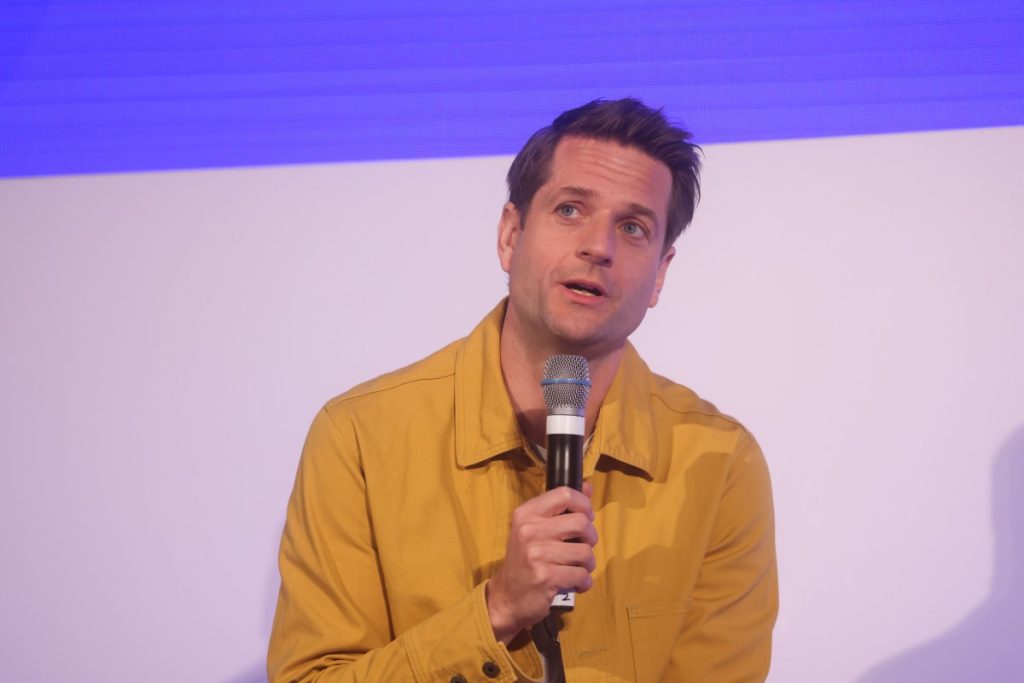Klarna’s Strategic Shift Embracing AI While Keeping Doors Open for Talent

Klarna, a leader in the financial tech industry, has sparked interest with its unique blend of AI integration and active recruitment strategy. The CEO’s recent remarks on AI’s role in hiring have prompted discussions. The company’s approach unveils a balance between technology adoption and maintaining a skilled workforce.
At Klarna, AI is seen not just as a tool but as a transformative force reshaping business operations. Despite halting general hiring, the company remains open to filling essential positions. This reflects a forward-thinking strategy in the dynamic world of fintech. The focus is on improving efficiency with AI, even while seeking new talent for critical roles.
AI’s Role in Klarna’s Workforce
Klarna has embraced AI to streamline its operations and reduce workforce size. The CEO, Sebastian Siemiatkowski, believes that AI can already perform many tasks traditionally handled by human employees. As AI continues to evolve, Klarna is set on utilizing these innovations to enhance productivity and cut costs, positioning itself at the forefront of digital transformation.
Current Hiring Trends at Klarna
Despite the integration of AI, Klarna still advertises over 50 open positions globally. The roles mainly target essential areas like engineering and policy development. This targeted approach signifies that while AI handles routine tasks, human expertise is indispensable for strategic growth and leadership.
Klarna’s hiring focus has shifted from general recruitment to specific roles. The company’s strategy highlights the need for talented individuals who can drive innovation and take on roles that AI cannot fill. Therefore, Klarna’s hiring reflects larger industry trends towards specialized recruitment.
CEO’s Vision on AI and Hiring
Sebastian Siemiatkowski has repeatedly emphasized his belief in AI’s potential. He claims AI can replace various job functions and contribute to enhancing employee salaries due to improved efficiency. His comments showcase the CEO’s visionary outlook toward AI’s role in shaping future workplaces.
Klarna’s AI-driven approach aims to gradually adjust their workforce without abrupt layoffs. By not hiring for roles that AI can fill, Klarna prioritizes efficiency. Siemiatkowski’s confidence in AI is evident as he strives to balance AI adoption with sustainable business practices.
While AI is at the forefront, Klarna acknowledges the need for human talent. The company actively backfills essential positions, indicating a belief in the synergy between AI and human expertise. This balance allows Klarna to maintain a competitive edge while nurturing innovation.
The Impact of AI on Shareholder Perception
With plans to IPO, Klarna’s AI integration is likely aimed at attracting investors. Demonstrating AI efficiency showcases a modern, cost-effective business model. Investors may view Klarna’s strategies as innovative, aligning with future-ready companies in the tech-driven market.
Klarna’s emphasis on AI could also be a strategic move to highlight business resilience. By embracing AI, Klarna positions itself as a forward-thinking corporation. The AI adoption serves as a testament to its adaptability in an ever-evolving business environment.
Klarna’s AI initiatives are not just about cost-cutting; they’re also about creating value. By leveraging AI, Klarna seeks to reassure investors of sustainable growth and operational excellence. This approach underlines the company’s capability to navigate a tech-savvy marketplace.
Industry-Wide AI Adoption
Klarna isn’t alone in its AI endeavors; tech giants like Amazon and Meta have also reduced hiring in favor of automation. This showcases a broader industry trend towards AI integration. Companies are prioritizing efficiency and innovation to stay competitive in the digital age.
As AI adoption grows, businesses re-evaluate their workforce strategies. Klarna’s selective hiring is part of a larger move toward specialized roles. Companies are gradually adapting to AI capabilities while ensuring critical human roles remain integral to their success.
Challenges in Replacing Human Roles
Replacing human roles with AI isn’t without challenges. Not all jobs can be automated quickly, and Klarna acknowledges this by continuing to seek skilled professionals. The balance between AI and human contribution is crucial in maintaining a robust operational framework.
Klarna’s strategy emphasizes ‘backfilling’ vital positions rather than overhauling its workforce entirely. This allows them to support employee retention and address tasks that require a human touch. As such, Klarna’s cautious approach helps maintain interpersonal skills in its workforce.
AI might boost efficiency but can’t replicate human creativity and problem-solving. Klarna’s approach ensures a balanced workforce, leveraging AI for repetitive tasks while reserving complex duties for human expertise. This strategy also addresses concerns about AI’s limitations in the workplace.
The Future of Work at Klarna
Looking ahead, Klarna sees AI as an ally, not an adversary. The company’s strategy revolves around a cooperative relationship between AI and employees, fostering an atmosphere of mutual growth and innovation. It’s a progressive view of the future workplace.
Klarna’s vision includes nurturing an environment where AI and human skills coexist. By complementing each other, AI can handle mundane tasks, freeing up employees for more creative roles. This approach speaks to a harmonious future of work which embraces both technology and talent.
AI’s Influence on corporate strategy
Sebastian Siemiatkowski’s AI deepfake publicity stunt is a bold statement about AI’s potential. It reflects Klarna’s strategic use of AI to capture public and investor attention. The company aims to portray itself as a dynamic, AI-savvy business in a competitive market.
Klarna’s strategy involves presenting AI as an integral part of its brand identity. The use of AI not only streamlines operations but also projects a forward-thinking corporate image. This strategy can bolster Klarna’s position as an innovative leader in the financial sector.
Adopting AI in corporate strategy is increasingly common in the tech world. Klarna’s efforts are a testament to the growing recognition of AI’s role in business transformation. The company’s agility in adapting to AI trends places it ahead in the competitive fintech landscape.
Klarna’s embrace of AI, coupled with selective hiring, signals a path towards a more efficient and innovative future. Balancing technology with human talent, Klarna remains committed to growth and adaptability. This approach not only enhances operations but also strengthens its standing in the fintech world.





